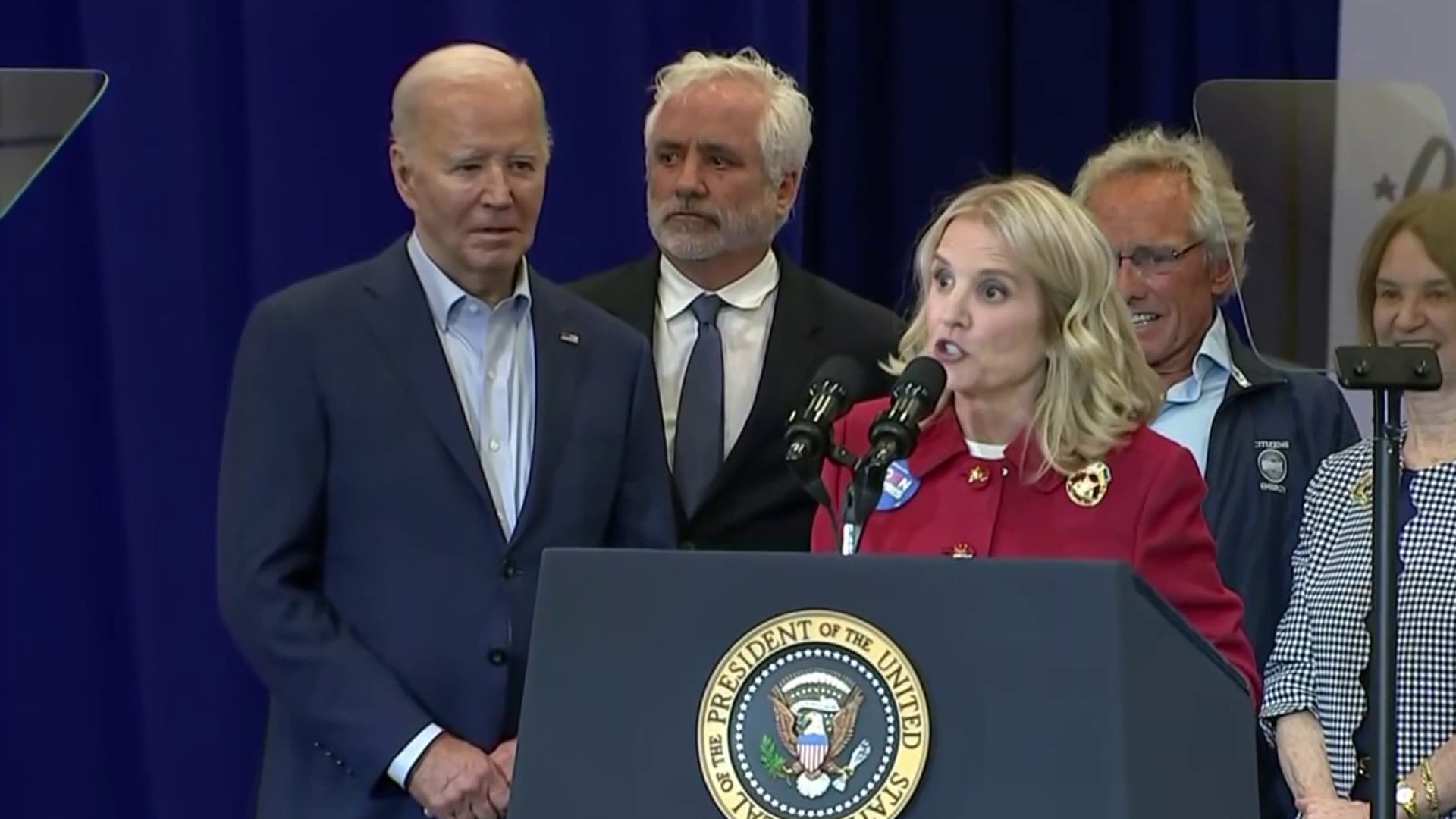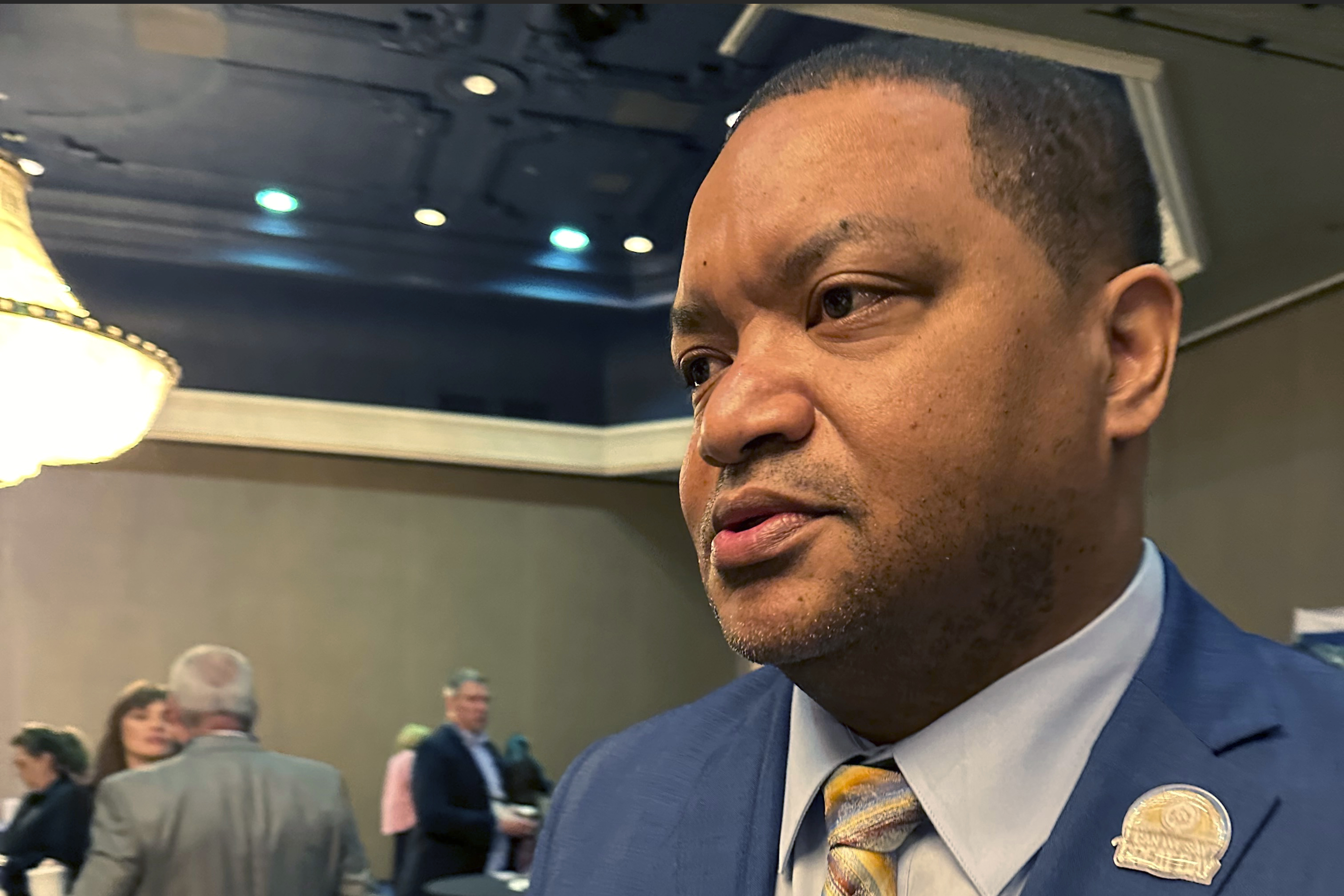What to Know
- Gov. Tom Wolf’s eighth and final budget proposal would push state spending well past $43 billion for the first time.
- Wolf delivered the $43.7 billion proposal to lawmakers in a joint session of the House and Senate, the kickoff of almost five months of wrangling before the fiscal year ends on June 30.
- A hallmark of Wolf's tenure in office has been a campaign to wipe out deep funding disparities between the poorest and wealthiest public schools, and he is again hoping to persuade the Republican-controlled Legislature to approve a large increase, more than $1.5 billion.
Gov. Tom Wolf's eighth and final budget proposal unveiled Tuesday would push state spending past $43 billion for the first time, with the Democratic governor asking lawmakers for the largest-ever increase in aid for public schools, plus more money for direct care workers, higher-education institutions and college scholarships.
Wolf delivered the $43.7 billion proposal to lawmakers in a joint session of the House and Senate, the kickoff of almost five months of wrangling before the fiscal year ends on June 30.
A hallmark of Wolf's tenure in office has been a campaign to wipe out deep funding disparities between the poorest and wealthiest public schools, and he is again hoping to persuade the Republican-controlled Legislature to approve a large increase, more than $1.5 billion.
Get Philly local news, weather forecasts, sports and entertainment stories to your inbox. Sign up for NBC Philadelphia newsletters.
In addition to public schools, Wolf wants to increase reimbursements for direct care workers who serve the elderly and disabled under Medicaid and to marshal more money to qualify Pennsylvania for new federal highway and bridge funding.
State universities and scholarship programs also would get substantial new sums, including $125 million for the 14-school State System of Higher Education and a $200 million scholarship program for students who go there.
Republican lawmakers, however, have long been leery of Wolf’s proposed spending increases, and they suggested that Wolf's starting bid in budget negotiations was a “fantasy” that not even Wolf himself would sign into law.
Politics
After years of stubborn deficits dating back to the recession, the state’s bank accounts are now flush from an economy juiced with federal pandemic subsidies, and a multibillion-dollar surplus — an eye-popping $6.5 billion — is projected for the coming year.
Most of Wolf's budget proposals have revolved around a large tax increase. However, given the state’s cash cushion, this time Wolf is proposing no change to state income or sales taxes, the state’s two main sources of income.
All told, Wolf’s plan would increase spending through the state’s main bank account to $43.7 billion, or about 13% higher than this year’s enacted budget of $38.6 billion.
However, federal pandemic aid has reduced the state’s reliance on Pennsylvania tax dollars for the current year. Counting $3.5 billion in federal pandemic aid, spending on state operations is projected to be about $41 billion in this fiscal year.
In his address, Wolf said it was time to fulfill the promise of equitable public school funding, a major commitment that the state can afford to meet right now.
“This is one of those cans it would really be easy to kick down the road,” Wolf said. “We could make it someone else’s problem, we could leave it for another governor or another legislature to figure out. But we know better. We know that putting off the inevitable is not solving the problem. The truth is, the longer we go without paying this bill, the more it’s going to end up costing us.”
Wolf also called for an increase in Pennsylvania's rock-bottom minimum wage — something Republican lawmakers have resisted since he took office in 2015 — and to cut corporate taxes by walking Pennsylvania back from its 9.99% tax rate on corporate profits, second-highest in the nation.
Wolf, who is constitutionally required to leave office next January when his second term ends, is touting himself as the only governor since Republican Dick Thornburgh in 1987 to leave a cash surplus to his successor.
Still, some of the surplus will be necessary to pick up the slack left by billions in federal pandemic aid that is footing state Medicaid bills this year.
Republicans warned that the state is still in a long-term deficit cycle, considering it is a relatively slow-growing economy with a ballooning retirement-age population and a shrinking working-age population.
Booming tax collections right now are simply masking a long-term deficit that will reemerge faster if the state spends billions from its surplus dollars, they said.
Senate Appropriations Committee Chairman Pat Browne, R-Lehigh, cautioned that Wolf’s budget figures "do not reflect history and they do not reflect reality.”
House Majority Leader Kerry Benninghoff, R-Centre, called Wolf’s spending plan “obscene” and Senate President Pro Tempore Jake Corman, R-Centre, called it “fantasy island.”
Democrats, however, echoed Wolf's message that now is the time to take advantage of huge surpluses to put the money towards long-term good that will help the state in the future.
“It’s all about investing in people, funding our schools so that property taxes go down and making Pennsylvania a more business-friendly commonwealth,” House Minority Leader Joanna McClinton, D-Philadelphia, said.
Sen. Vince Hughes of Philadelphia, the ranking Democrat on the Appropriations Committee, said he was heartened by Wolf’s continued focus on education spending.
“I think the big news today is the education funding,” Hughes said. “I think the big news today is that we have the surpluses available to us to pay for it.”
___
Follow Marc Levy on Twitter at https://www.twitter.com/timelywriter and Mark Scolforo at https://www.twitter.com/houseofbuddy.



